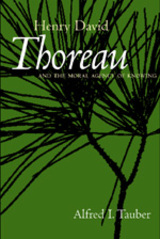I’ve been a wilderness lover since the summer my brother David and I first rode our bicycles into the Sierra Nevada, but I never did think much of Henry David Thoreau, until I suddenly fell in love with him.
To me, Thoreau was just some New England liberal garden-naturalist who might have liked to walk Robert Frost’s “Road Less Traveled”. He was no John Muir.
I’m not sure that I ever really read Walden until I was about 40 years old, after I had just read some Nietzsche and some books on Zoroastrianism.
What an eye-opener! The author of Walden was a mystic, a radical individualist, a wit, and a metaphysician. I was most taken by his usage of the word “moral”, and saw in him shades of Nietzsche and Zoroaster, and maybe a touch of Heraclitus.
Since losing my religious faith, I had become more and more convinced that faith must come from within, as asserted by Emerson in his radical essay “Self-Reliance”. This doctrine was clearly something that Thoreau had taken to heart, but there was much more to him than that.
“Our whole life is startlingly moral,” he said. That is just what I had been yearning to hear. I was attracted to the idea of an ethical metaphysics, that is, a way of looking at the world as fundamentally moral, rather than material or “spiritual” (non-material?). I had begun to understand that everything that we observe seems to be perceived aesthetically. Couple that with our ever-present sense of intention, and you might see a world that “is startlingly moral”; both value-laden and intentional.
One of the great expressions of this idea in human culture can be found in Zoroastrianism. This Iranian religion stood out among the classical schools of thought as one that saw the world morally rather than metaphysically. They saw everything composed of good and/or evil. Their metaphysics, if it can be called metaphysics, is usually called “cosmic dualism.” It is based upon the idea that the world is essentially a cosmic conflict between good and evil.
Thoreau often seemed to see the world as a moral landscape, but he did not view Nature as a moral guide. At times, he would confess that his beloved Nature could be quite cruel, and he could sound a lot like a Zoroastrian:
“Are there not two powers?”
—Journal, Jan 9, 1853
Tauber hits upon this aspect of Thoreau:
Thoreau appreciates the terrifying otherness of nature, an insight that McGregor (1997) has argued was pivotal to Thoreau’s existential and literary development.
Walden startled me. I had just read a work by Nietzsche using the character of the Persian Prophet Zoroaster as the protagonist in a modern moral drama, and next thing I know I’m reading from what I thought was an environmentalist who sounds something like a prophet of ethical metaphysics, like an American Zarathustra!
Curiously, it turns out that Zarathustra (AKA Zarathushtra ), little that we know of him, was also an environmentalist. One of the causes closest to his heart appears to have been sustainable agriculture.
Funny that Thoreau features Zoroaster in one of the paragraphs of Walden:
“The solitary hired man on a farm in the outskirts of Concord, who has had his second birth and peculiar religious experience, and is driven as he believes into the silent gravity and exclusiveness by his faith, may think it is not true; but Zoroaster, thousands of years ago, travelled the same road and had the same experience; but he, being wise, knew it to be universal, and treated his neighbors accordingly, and is even said to have invented and established worship among men. Let him humbly commune with Zoroaster then, …”
Thoreau seemed to think of himself as a prophet of sorts, perhaps the Prophet of Concord. I must admit that hadn’t occurred to me, though, until I read a certain book on Thoreau.
It wasn’t until a couple of years later that I was rummaging through a used book store in Berkeley and stumbled onto Alfred I. Tauber’s book Henry David Thoreau and the Moral Agency of Knowing (2001). My eyes must have popped out. If they did, I was too startled to notice. I had found someone w ho was willing to discuss the ethical metaphysics and epistemology of Thoreau.
ho was willing to discuss the ethical metaphysics and epistemology of Thoreau.
Upon doing the reading, I was not disappointed. The book is difficult at times, but it is generally accessible, and quite thorough. Tauber clearly took great pains to address Thoreau’s philosophy of value in the context of the enlightenment, romanticism, positivism, existentialism and phenomenalism.
Tauber’s central theme is Thoreau’s view of science. Tauber presents Thoreau as a Romantic naturalist confronted by the onset of positivism, and the dualistic subject-object metaphysics that positivism rested upon, both of which dominated science before the advent of Quantum Mechanics, and still have a strong influence on the modern mind. To Tauber, Thoreau is a poet-naturalist attempting to rescue science from the new objectivism of his time.
“… a theme explored here, is that objectified knowledge must be made meaningful. This was the program enunciated by Michael Polanyi, and, I have argued, this was also Thoreau’s own project.” —Tauber, Epilogue
The only major theme that Tauber appears to overlook is the central role of simplicity (purity) in Thoreau’s mysticism and philosophy (another peculiar parallel between Zoroaster and Thoreau). This may be because the psychology of simplicity, as important as it was to Thoreau, was off-topic for Tauber as a philosopher of science.
Further Reading:
Robert Kuhn McGregor, “A Wider View of the Universe: Henry Thoreau’s Study of Nature” (1997)